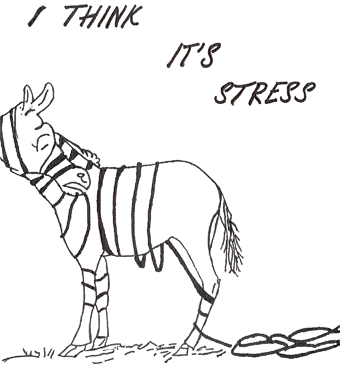|
Stress, Anxiety & Depression
What’s your stress?
Mental? Physical? Emotional?
Are you a worrier? Do you suffer from anxiety?
We could continue discussing, Acute Stress verses Chronic
Stress, or Internal Stress verses External Stress...
the bottom line is, stress impacts a person’s health and well-being.
|
A 1992 study found that a 30-minute back massage given daily for five days reduced anxiety
of hospitalized and depressed children.
|
I'd like to test that theory and add to the pool
of positivity. Hence, I am offering this Reset Package 5 1/2 hour sessions for $250.00* * Click here for details
|
| |
|
The parasympathetic nervous system is activated by rest and safety. This is known as the relaxation response, which slows the heartbeat, increases the secretion
of most of the glands and increases digestion and elimination, conserves energy, tissue regeneration and repair in response
to safety, rest and nurturance.
|
The sympathetic nervous system is activated during stressful
events, providing a burst of energy, often termed the fight-or-flight response. Heart rate and
blood pressure increase. Blood is directed to the heart, brain and skeletal muscles, and away from digestive, urinary and
other areas that are not immediately involved in fight-or-flight. Long-term, unrelieved stress may increase cancer risk by keeping the sympathetic
nervous system turned on, and the immune system suppressed by the body’s cortisol. Cells respond to stress by changing
their size, shape and function. |
|
|
Our body/minds are equipped to tell us when
we have had enough sympathetic activation and it is time to let up.
Effects of Stress on the Body: Headaches, teeth grinding, muscle tension, musculoskeletal pain, including neck and back pain, chest pain,
fatigue, stomach and
intestinal problems (nausea, heartburn, indigestion, pain, cramping, constipation, diarrhea and increased gas), sleep problems,
insomnia,
hyper-somnia
and nightmares, forgetfulness, lack of sex drive, tremors or shaking, trembling, sweating, lightheadedness, dizziness, dryness in mouth or throat, frequent colds
or infections, unexplained allergy attacks, difficulty breathing or feeling like it’s hard to take a deep
breath, high-pitched laughter or voice, frequent urination, weight changes
without diet changes
Cardiovascular Issues: risk for heart failure goes up: increased left ventricular dysfunction, cardiac arrhythmias, heart pounding, heart rate and blood pressure increase, and increased clotting can potentially lead to pulmonary embolism and stroke
Pulmonary and Endocrine Changes: Asthma flares - insulin production can increase
while sensitivity to insulin
decreases, putting
some at risk for developing diabetes |
|
|
|
Effects
of Stress on Mood: anxiety, lack of focus or difficulty concentrating,
lack of motivation, irritability, edginess, or frustration, anger, feelings of sadness or depression, panic attacks, feeling
overly guilty or nervous
|

|
|
Healthy Lifestyle
Changes Diet - Eating a whole-food, plant-based diet (lots of veggies, whole grains, nuts and legumes,
and fruits, while limiting processed and high-sugar foods). Exercise - 45 to 60 minutes a day of brisk activity
(any physical activity that gets you moving and gets your heart rate up is great; the more your clients enjoy the activity,
the more likely they are to continue doing it). Stress reduction and management - 30 to 60 minutes
per day of formal stress management (massage, yoga, tai chi or meditation, for example). Connectedness
- Building and maintaining connectedness and community through whatever means makes sense to you. This can be family,
church, volunteering or, more than likely, a combination of several things.
|
Effects
of Stress on Behavior: Angry outbursts, mood swings, increased
use of alcohol or drugs, gambling, appetite changes, overeating, under
eating, tobacco use, social withdrawal, frequent crying spells,
overreacting to minor annoyances or occurrences, hypervigilance, obsessive-compulsive
behavior, frequent use of over-the-counter medications, impulse
buying. |
*
Self-care is essential! Please reach out for professional support as needed. Click here for additional Recommendations. <<
|
